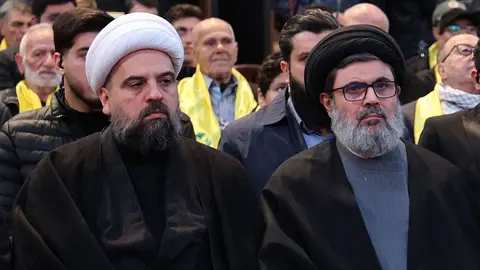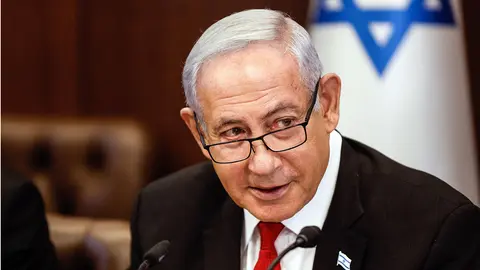Blinken and Netanyahu unite over Iran threat
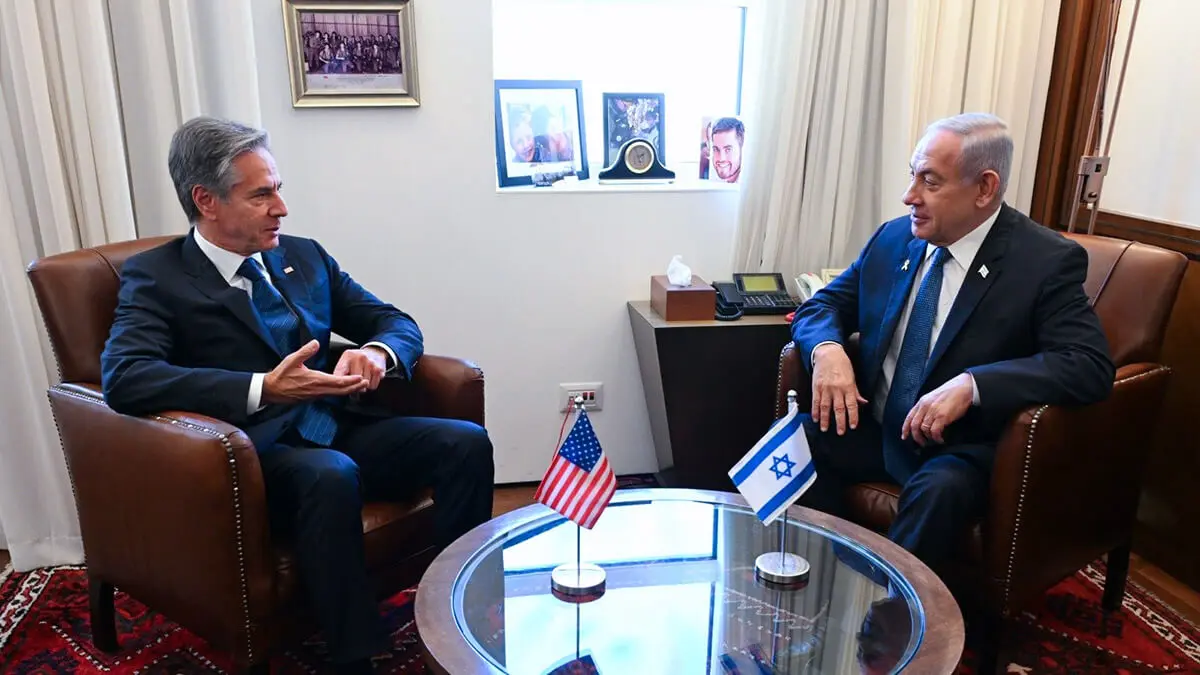
US Secretary of State Antony Blinken visited Jerusalem to meet with Israel's Prime Minister Benjamin Netanyahu to discuss the turbulent situation in the Middle East.
The Gaza war between Israel and Hamas is still raging, with tens of thousands of casualties, and a peace agreement is urgently needed to halt the escalation of tension in the territory and the region as a whole.
The objectives of the two-and-a-half hour meeting between Blinken and Netanyahu in the president's office were clear: to resume truce negotiations after the death of the last Hamas leader, Yahya Sinwar, to improve the humanitarian situation in the north of the Palestinian territory, to return the Israeli hostages kidnapped by Hamas, to stop the escalation of war between Israel and Hezbollah in the border area with Lebanon, to prevent further armed attacks between Israel and Iran and to reduce the Iranian threat.
‘The meeting discussed the Iranian threat and the need for the two countries to join forces against it,’ the statement from the office of Israeli Prime Minister Benjamin Netanyahu said.
Blinken called for the opportunity created by the death of Hamas leader Yahya Sinwar to reach an agreement to end the war in Gaza and ensure the return of the hostages, while reiterating the need to increase humanitarian aid to the hard-hit Palestinian territory.
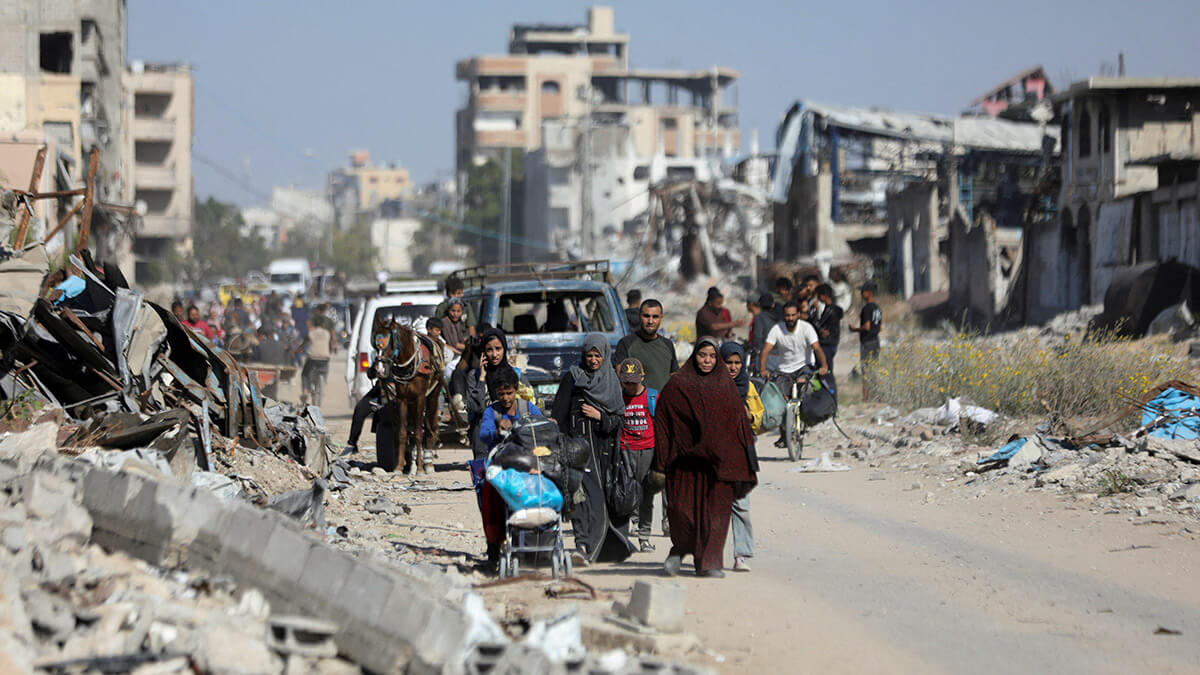
Antony Blinken also met with Israeli President Isaac Herzog. Blinken said that ‘there are things to be done: bringing the hostages home and ending the war knowing what comes next’. The US Secretary of State said there had been ‘progress’ in increasing aid to Gaza, ‘which is good, but more progress needs to be made and, more importantly, sustained’.
The US Secretary of State also reaffirmed America's ‘unwavering commitment’ to Israel in the midst of the Middle East maelstrom.
The clear objective is to reduce the influence of Iran, the main standard-bearer of the Shiite branch of Islam in the region, which uses its related groups such as Hamas in Palestine, Hezbollah in Lebanon and the Houthis in Yemen to meddle in the internal affairs of other states and generate instability, as various analysts have pointed out.
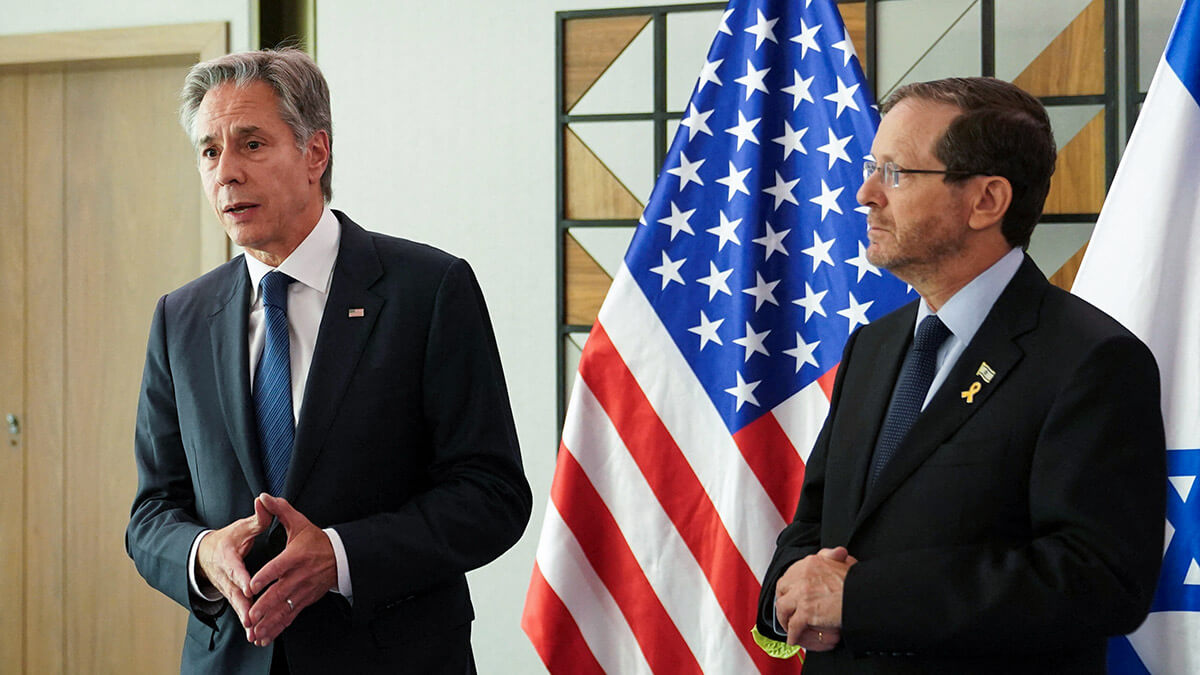
Gravity of the conflict
The Gaza war continues to unfold since the military operation launched by Israel in response to the horrific terrorist attacks carried out by Hamas on 7 October 2023 in Israeli territory that left around 1,200 people dead and 250 kidnapped.
In response to this vicious offensive, the Israeli army launched a military campaign against the Gaza Strip with the aim of wiping out the Palestinian extremist group, which holds absolute power in the enclave.
Following the incursion into Gaza, there were responses against Israeli attacks, especially from enemies such as the Islamic Republic of Iran and other Shiite groups allied to the Ayatollah regime, such as the Hezbollah militia in Lebanon or the Houthis in Yemen.
Israel has been enduring missile and drone attacks on its territory, which it has largely been able to repel thanks to its imposing defence system, represented mainly by the Iron Dome.
But it continues to feel the latent threat of any attack from Hamas, Hezbollah or even Iran.
The United States has developed contacts over the past months to broker a truce with the mediation of other nations such as Egypt and Qatar. But so far, however, the desired agreement between Israel and Hamas to end the war has not been reached, due to major differences on issues such as the release of hostages by both sides, Jewish settler settlements in the claimed Palestinian territory, or what to do with key points such as the Philadelphi Corridor, located along the border between the Gaza Strip and Egypt, an essential area for the Israeli army to achieve its military objectives.
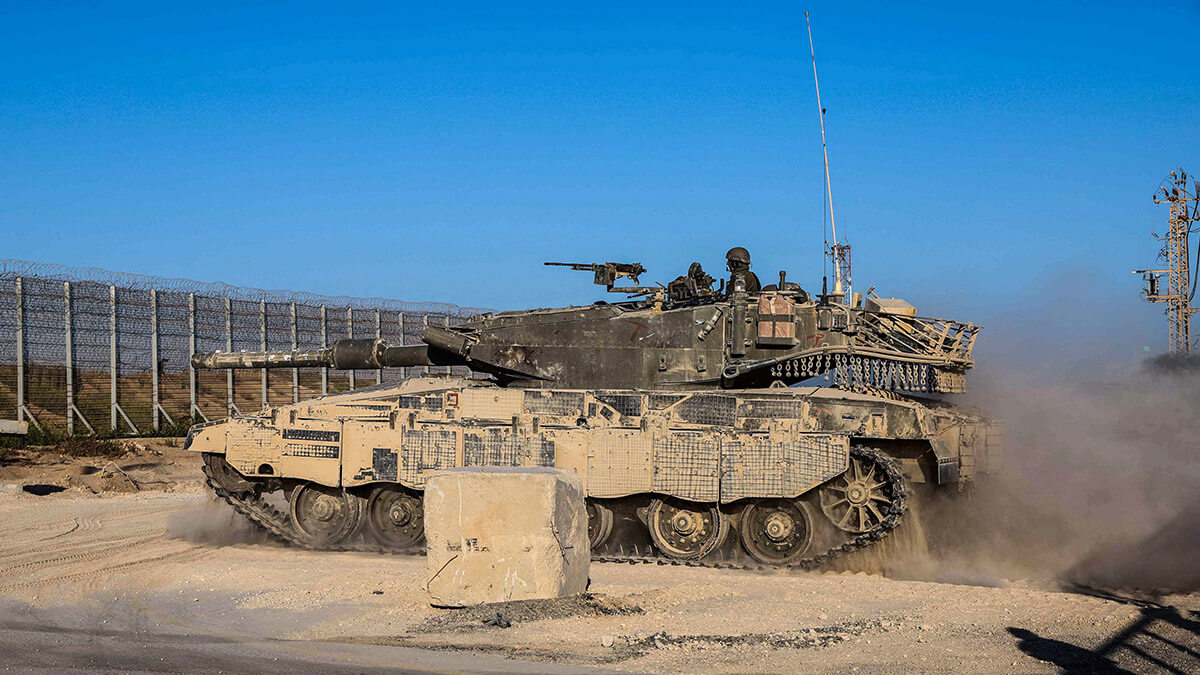
Israel is on a clear mission to respond harshly to Hamas and Hezbollah threats of war in the face of aggression and is steadily dismantling the leadership of these militias. Already fallen recently were the historic Hamas leader Ismail Haniyeh, in an operation promoted by Israeli intelligence services, which ended with his death while he was in Iran at the inauguration of President Masoud Pezeshkian; the also historic Hezbollah leader Hassan Nasrallah, who was killed in an Israeli Air Force attack on the Shiite militia's headquarters in Beirut; Yahya Sinwar, also killed in a military operation in Gaza; or Hashem Safieddine, Nasrallah's successor, also killed in another attack orchestrated by Israeli intelligence against the Lebanese militia's headquarters in the Dahieh neighbourhood of Beirut.
According to analysts, within the complex web of conflicts in the Middle East, the Israeli-Hezbollah conflict on the Lebanese border is expected to end sooner than the Hamas conflict, because negotiations to end the Gaza war are complex and have not yet come to a successful conclusion.
Beyond these two clashes lies a more profound confrontation with Iran, Israel's historic enemy, whose leaders have on several occasions pointed out that the Islamic Republic's vital objective is to wipe out the Israeli state.
In the background, there is the serious problem of allowing Palestine and Israel to coexist on the same territory. This has been the underlying conflict for decades. Many analysts and leading figures in international politics advocate the solution of two states, Palestinian and Israeli, coexisting on the same territory. But the formula to materialise this proposal has not yet been found, due to divergences such as where the capital of each state should be located.

